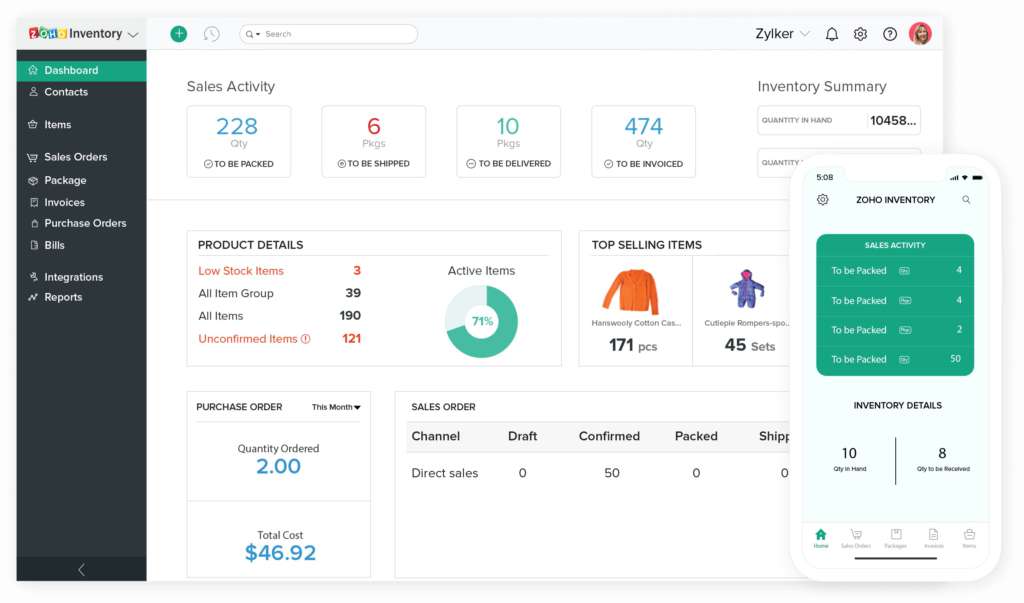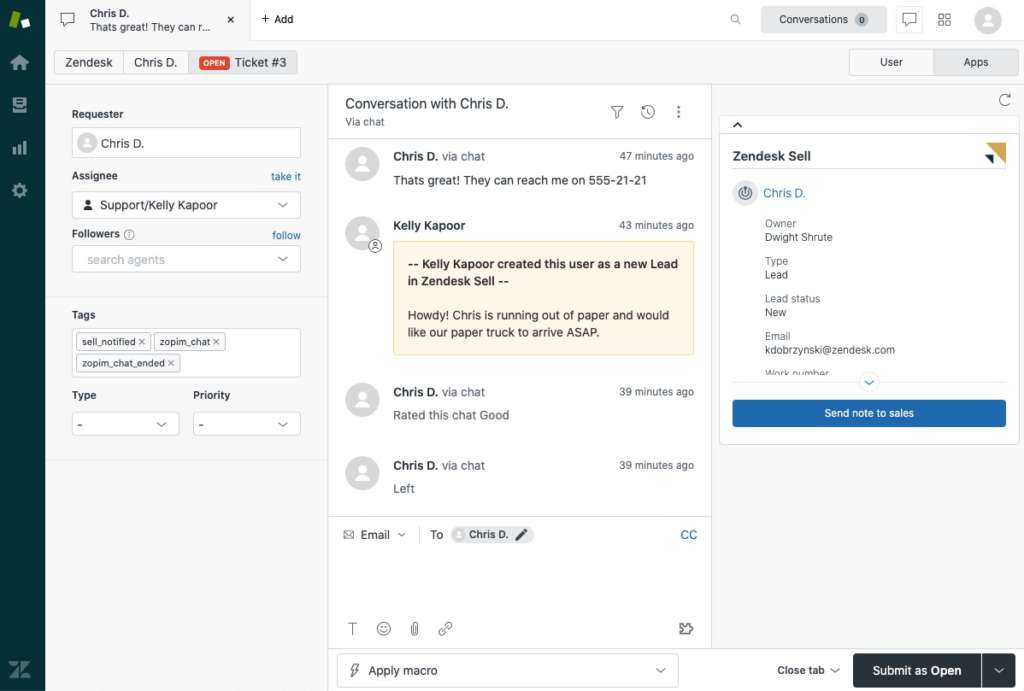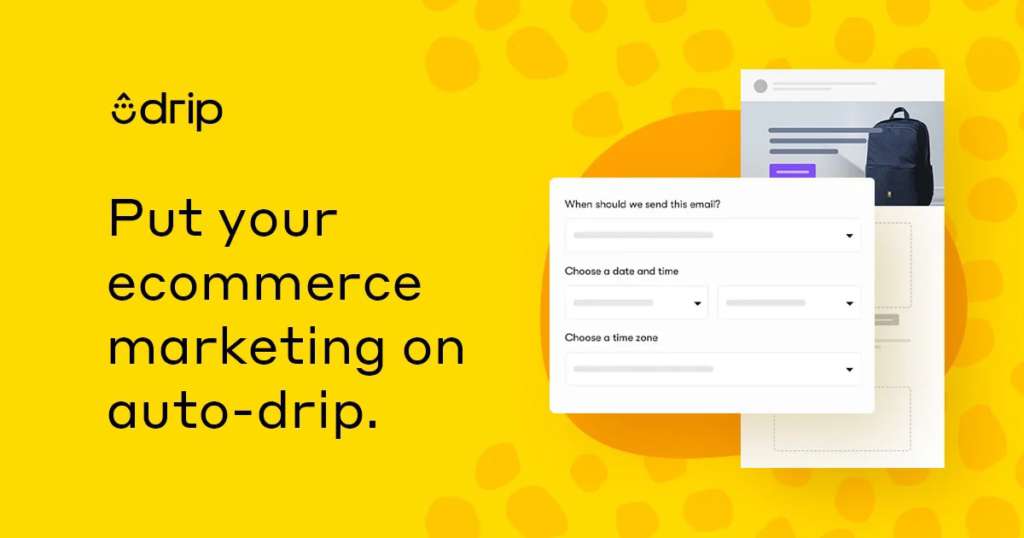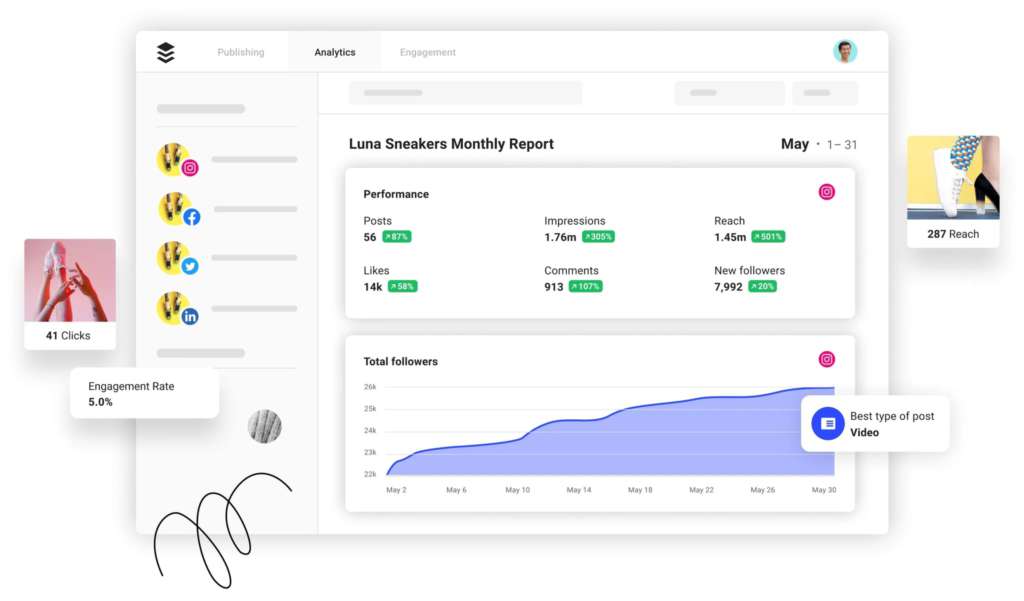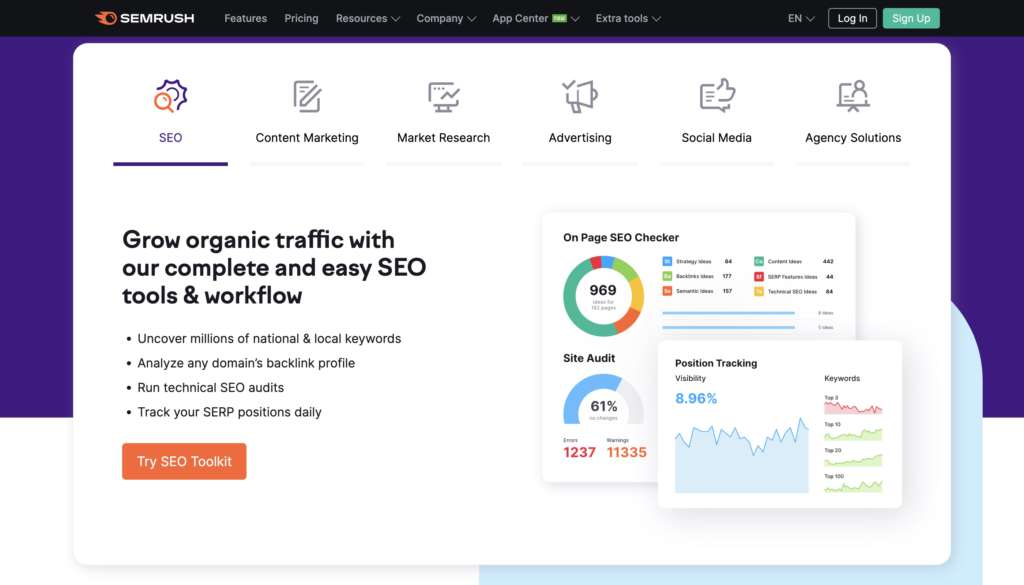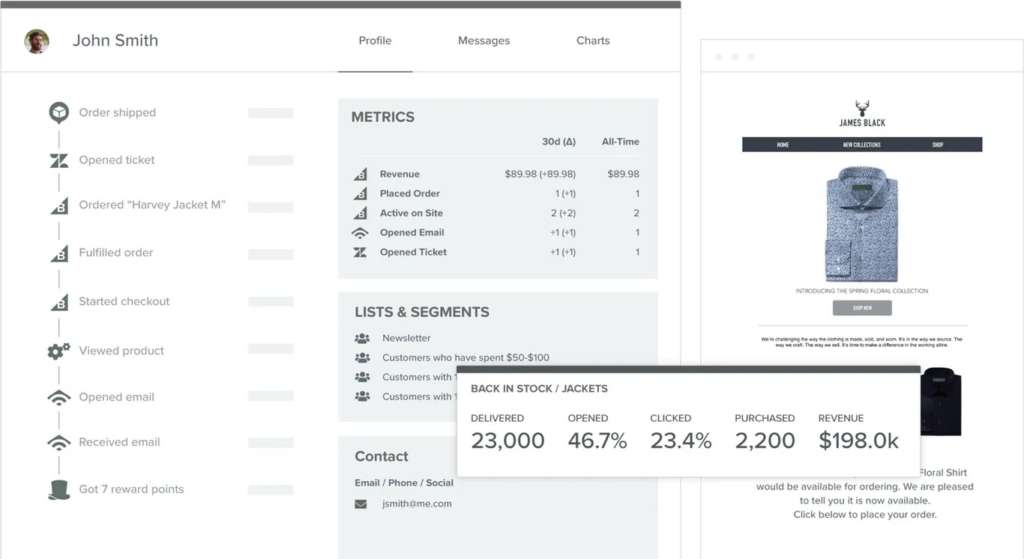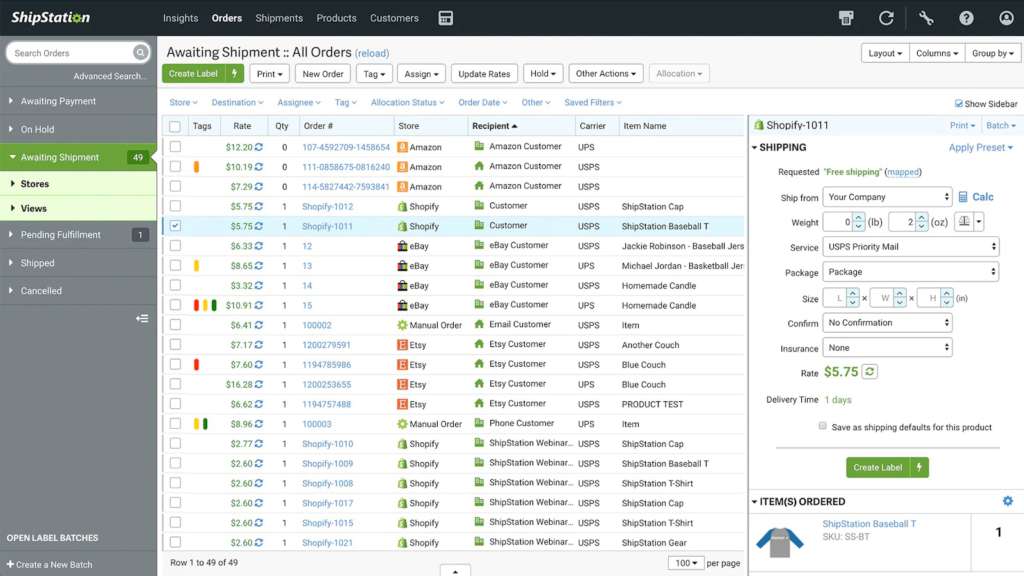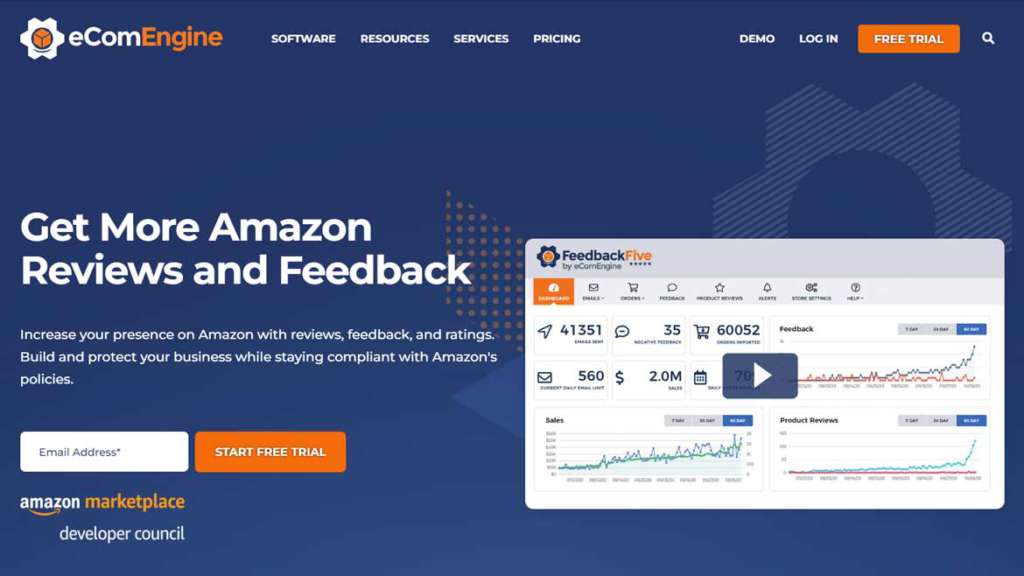
8 Best Automation Tools to Streamline Your eCommerce Tasks
Automation can be a key differentiator between a good business and a great one. This is especially true for small and medium eCommerce owners who can use automation to help free up their time, allowing them to focus on more important tasks that generate revenue.
These automation tools can streamline various tasks and processes for eCommerce sellers and can reduce human errors to enable increased revenue and greater efficiency.
So, instead of putting out fires, online sellers can focus on higher-level problems.
Regardless of whether you are a big eCommerce firm or a small seller, it’s a good idea to let automation take care of the heavy lifting.
In this article, we share the 7 best automation tools that you can use to streamline your eCommerce tasks. These tools will help you shorten your to-do lists.
Before getting started, let’s discuss how automation tools can help your business.
Why use automation tools?
Let’s look at how eCommerce automation can help your business –
- It saves time and money
- It eliminates human errors
- It boosts customer satisfaction
- It improves supplier interaction
- It boosts efficiency and productivity
- It streamlines the marketing strategy
- It increases team productivity and satisfaction
- It increases conversions and returns on investment
- It improves the alignment of sales and marketing goals
- It enhances the ability to generate more and better-qualified leads
Choosing the right automation tool for your online store
When looking for the right automation tool to make your job easier, consider the following factors to get the most out of your choice –
Ease of use
The first and foremost quality to look for in an automation tool is the ease of use. The tool you choose should be easy and intuitive for each one of your team members. You can also ask for a free demo and analyze if the specific tool is capable of seamlessly performing your desired tasks.
Functionality
The next factor to consider is functionality. Note down the features you need so that you can look for those specific features while searching for an automation tool. It’s better to choose a tool that can natively integrate with your existing technologies as it will save you time and money and will reduce the time spent on training your team members.
Customer support
A green flag to look for in an automation tool is excellent customer support. You should have access to multiple support channels like live chat, phone support, email, and a knowledge base. Having omnichannel support will ensure you always get help when you need it.
8 best eCommerce automation tools
Below are some of the best eCommerce automation tools you can use for your business –
1. Zoho inventory: Inventory management automation
The first automation tool on our list is Zoho Inventory which is the best inventory management software for growing eCommerce businesses. It helps small and medium business owners on a tight budget to manage stock flow across different sales channels and fulfill orders seamlessly.
It is considered one of the best and most cost-efficient tools in the market to help eCommerce sellers boost sales, expand their business, and more.
Since it seamlessly integrates with other applications, you can use Zoho Inventory as a single tool to link to your Amazon, Shopify, and eBay accounts, create purchase orders, manage drop shipments, and much more.
There is also end-to-end tracking for each item in your inventory with serial numbers and batch tracking. You can also choose from multiple shipping integrations to ensure that your customers get their orders as quickly as possible.
It also has advanced inventory management tools to access accounting software and asset management tools, helping you make informed business decisions.
Key features
- Easy-to-use interface
- Warehouse management
- Sales order management
- Excellent inventory tracking
- CRM integration
- Reporting and analytics
- Crossfire EDI integration
- Invoicing and billing
- SKU generator
- Post-shipment updates
- Barcode scanning
- Webhooks and custom functions
- Vendor management
- Integration with various leading tools
- Item management, multi-warehouse management, and serial tracking
2. Zendesk: Customer support automation
Zendesk is a household name when it comes to customer support and customer service. It offers a large array of tools including a help desk, email marketing, live chat, sales, employee engagement, and customer engagement software.
As a leader in the help desk software category, Zendesk enables support teams to manage all aspects of customer engagement, build a centralized dashboard, and harness automation to personalize the user experience.
Zendesk’s intuitive interface is ideal for optimal navigation and ease. Customers can use the help center to guide themselves in the best possible way rather than waiting for an agent to answer their phone. It offers an expansive and easily searchable user base that helps users quickly locate the answers they need.
It also offers an AI-powered chatbot that can instantly assist customers by pointing them to the answer they are looking for or guiding them to the best-qualified service agent.
Key features
- All-in-one lead generation and customer service platform
- Send automated ticket reminders to customers
- Create and manage automation for time-based events
- Offers a lot of customization options
- Access relevant customer data in real-time to quickly solve customer service tickets
- Powerful analytics and reporting
- Robust integration with third-party applications
- Support for multiple languages
- Track customer history across different mediums
- Set up a store chat with AI-powered bots in one click
- Messaging and live chat
- Community forums
- Knowledge base
- Help center
- Answer bot
3. Drip: Marketing automation
This email and SMS marketing automation tool is well-suited for growing brands.
Drip stands out in this list because it is a tool designed specifically for eCommerce companies. It is full of unique features that help eCommerce business owners leverage automation to increase sales and build a brand.
Everything in Drip is focused on online retailers, allowing them to automate most parts of the customer journey through emails and SMS messaging. It offers pre-built playbooks for various customer communications like welcome series, abandoned carts, post-purchase campaigns, win-back campaigns, birthdays, and much more.
Its easy-to-build workflow can also target and segment audiences in optimal ways to increase engagement.
Drip empowers eCommerce companies to easily set up revenue-boosting email workflows that run automatically.
Key features
- Build-in email and SMS workflows
- Ability to personalize at scale
- Social media syncing
- Robust analytics dashboard
- Forms and popups
- Point-and-click visual workflow builder
4. Buffer: Social media automation
Sales from social commerce are expected to reach $2.9 trillion by 2026. In that case, it would be an understatement to suggest that social media is important for eCommerce brands.
That’s why social media platforms are essential in reaching out to new customers at scale. It can be a key growth driver for eCommerce businesses.
Buffer is a popular social media automation tool that allows eCommerce businesses to automate scheduling and social media analytics so they can focus less on the technicalities of social media and more on their core message.
Buffer helps businesses save numerous hours every day by automatically scheduling and publishing across various networks like Facebook, Twitter, LinkedIn, Instagram, Pinterest, etc. It can also compose posts on your behalf and allow you to pre-load posts that will automatically be metered and posted at regular intervals.
Buffer helps you build an audience organically while providing affordable, intuitive, social media marketing tools.
Key features
- Intuitive and easy to use
- Simple yet powerful interface
- Support for social scheduling and publishing
- Easy collaboration and teamwork features
- Smart campaign management
- Allows interacting with your audience via a single dashboard
- Content analytics, audience demographics, and follower activity
- Offers a free visual editor to create engaging posts for social media
5. SEMrush: SEO automation
SEO tools can save you time by automating keyword research and data analysis.
One of the most popular SEO automation tools you can use is SEMrush which is a fan favorite in the SEO community.
SEMrush offers numerous SEO automation features for a complete optimization workflow. It lets you easily assess your rankings and identify new ranking opportunities.
Its tracking tool enables automated keyword research and tracks organic search positions. Its site audit tool checks for technical factors and its brand monitoring tool can perform profile checks and detect brand mentions for link-building opportunities.
The report builder tool can create custom reports.
Key features
- Keyword research
- On-page SEO
- Competitor analysis
- Content marketing
- Local SEO
- Rank tracking
- Social media management
- Link building
- Competitor SEO analysis
- Content creation and distribution
- Content optimization
- Content marketing analytics
- Market analysis
- Paid advertising
- Competitor PR monitoring
- PPC keyword research
- Website monetization
6. Klaviyo: Email automation
Email communications are crucial for keeping customers coming back. That is why Klaviyo can be a handy tool for eCommerce sellers looking to automate their email marketing.
Klaviyo is one of the fastest-growing email and SMS marketing tools for eCommerce brands. As a marketing automation tool, it helps you deliver customized experiences across not just emails but also SMS, app notifications, and the web.
What makes Klaviyo special is that it was designed specifically to capture customer data from eCommerce sites and then leverage it for personalized email campaigns.
This email-specific marketing automation tool has many pre-set templates that allow quick email creation. It can also offer additional segmentation and data analysis for email lists.
Klaviyo allows you to control everything from a single dashboard. It also has excellent segmentation and personalization capabilities like dynamic data blocks.
Key features
- Automated personalized communications
- Built-in email design templates
- Powerful customer segmentation
- A wide variety of customizable automation workflows
- Reports with real-time insights into marketing performance
- Best-in-class integrations
7. ShipStation: Order fulfillment automation
ShipStation is a popular choice for online sellers for shipping automation. It allows you to import, manage, and ship your orders.
ShipStation allows eCommerce sellers to easily aggregate orders from multiple sales channels (like Amazon, Shopify, eBay, etc.) and fulfills these orders through a variety of shipping carriers and fulfillment providers.
Since it integrates with almost all popular marketplaces, it allows you to easily link all your sales channels to funnel every new order to a centralized dashboard.
It offers customizable automation rules that easily manage repetitive tasks, to simplify your shipping process. This can save you several hours each day.
Key features
- 3PL management
- Label creation
- Multi-carrier access
- Package tracking
- Print labels in bulk
- Integrations with all leading eCommerce platforms
8. FeedbackFive: Amazon review automation
Amazon reviews are crucial for inspiring buyer trust and increasing visibility on the platform. Having recent and relevant reviews is important, but getting them can be challenging.
That’s where FeedbackFive by eComEngine comes in. The popular Amazon review software allows third-party sellers to send automated review requests that are compliant with Amazon’s review policies. It also aggregates and analyzes review data so sellers can understand how each of their products is performing over time. FeedbackFive alerts for negative reviews allow sellers to respond quickly when there’s an issue to resolve, helping to enhance the customer experience. Sellers can also set parameters to automate requests based on specific products or timing preferences.
The best way to get more reviews is to ask for them. FeedbackFive makes it easy to do just that!
Key features
- Intuitive and scalable Amazon review request automation
- Send feedback and review requests
- SMS/email alerts for new reviews
- Detailed review analytics
- Available in the Amazon Selling Partner Appstore
Wrapping up
So these were some of the best automation tools for eCommerce sellers. We hope this list helps you streamline your eCommerce tasks so you can save time and focus on more important activities instead of getting stuck in repetitive maintenance tasks.
Another great tool that can help you in your eCommerce journey is DoMyShoot. It’s a product photography solution that helps eCommerce sellers and online retailers get high-quality product photos for their catalog listings or social media channels.
What’s more, you can get these professional quality product images at only $1 per image. To check out the app for yourself, request a demo today.
If you liked reading this article, we would suggest checking these as well –

